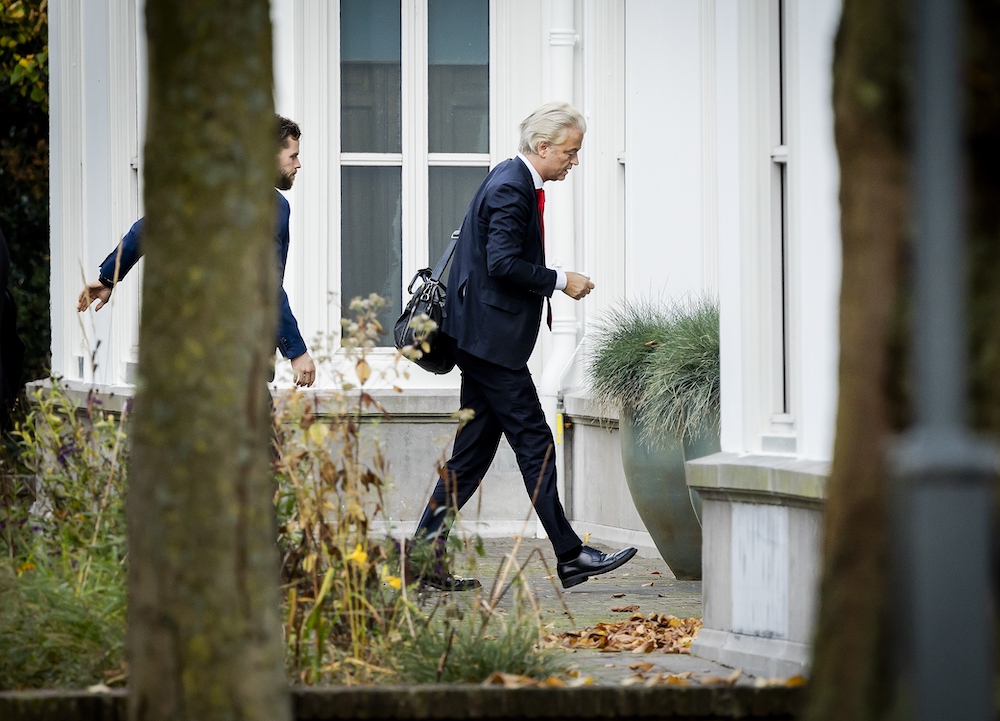Dutch refugee plan means border checks, safe areas in Syria
Robin Pascoe
The right-wing Dutch government has abandoned plans to declare a refugee crisis but will press ahead with a number of tough measures to reduce the number of asylum seekers coming to the country.
These include reducing residency permits for refugees from five to three years, border controls, declaring parts of Syria safe, and ending local authority quotas for housing refugees, broadcaster NOS said on Wednesday afternoon.
The NOS has seen a draft of the document which has been thrashed out between the far-right PVV and the NSC, which was opposed to the PVV’s demand to invoke crisis legislation and bypass parliament.
The plans are being discussed at a meeting of all four coalition party leaders and prime minister Dick Schoof on Wednesday afternoon and are set to be rubber stamped by ministers at Friday’s cabinet meeting.
The measures, which will have to be approved by the upper and lower houses of parliament, are contained in a document entitled the “asylum emergency regulation law”. Schoof says in his introduction that the Netherlands is facing an asylum crisis and that the “asylum system cannot continue in its current form”, NOS reported.
The government aims to scrap permanent residency permits for refugees and reduce the current five-year refugee permit to three years “in line with nearby countries”.
Adult children will no longer be able to join their parents in the Netherlands and neither will refugees’ partners if they are not married.
As expected, legislation ensuring refugees are spread around the country will be withdrawn, “this year if possible”, even though it is proving a success. Some 84% of the Netherlands’ local councils now have or are working on some form of refugee accommodation. At the beginning of this year, 47% had provided no refugee housing for at least 10 years.
Local authorities will also no longer be required to provide permanent housing for a given number of people and refugees with a residency permit must take whatever home they are offered. More “basic provisions” will also be developed to absorb people with a residency permit but without a permanent home.
Parts of Syria will be declared safe “possibly this year” and refugees who come from those areas and have not yet been processed can then be sent back. Officials will also “look at” sending back refugees from those areas with permits, NOS said.
Border controls
The Netherlands also plans to introduce border controls from the end of November in an effort to stop and send back migrants who have requested asylum in Germany and Belgium. NOS did not give more details of the border control plans. Germany took similar steps earlier this month.
In addition, the cabinet intends to scrap the compensation payable to refugees whose cases take too long to process.
The Netherlands will also reduce the number of extra refugees it takes in via UN channels from 500 to 200 and build up to 100 extra cells for failed asylum seekers and “illegals” to await deportation.
NOS did not say if the document includes the suggestion that some African refugees could be sent to Uganda, an idea floated last week by trade minister Reinette Klever during a visit.
Cabinet crisis
“This is a package of measures which all four coalition parties can agree with,” said NOS reporter Xander van der Wulp. “And after weeks of threatening language between the parties, it would appear that none of them want a cabinet crisis.”
Analysts said earlier that the risk of a cabinet crisis, or even the coalition’s collapse, does now appear to have been averted and that Wilders has shown a more conciliatory tone in recent days.
The so-called asylum crisis is largely down to the shortage of housing and refugee numbers are well below official forecasts. The total number of applicants in 2024 is on course to reach 50,000 this year, the same as in 2022 and 2023.
Thank you for donating to DutchNews.nl.
We could not provide the Dutch News service, and keep it free of charge, without the generous support of our readers. Your donations allow us to report on issues you tell us matter, and provide you with a summary of the most important Dutch news each day.
Make a donation